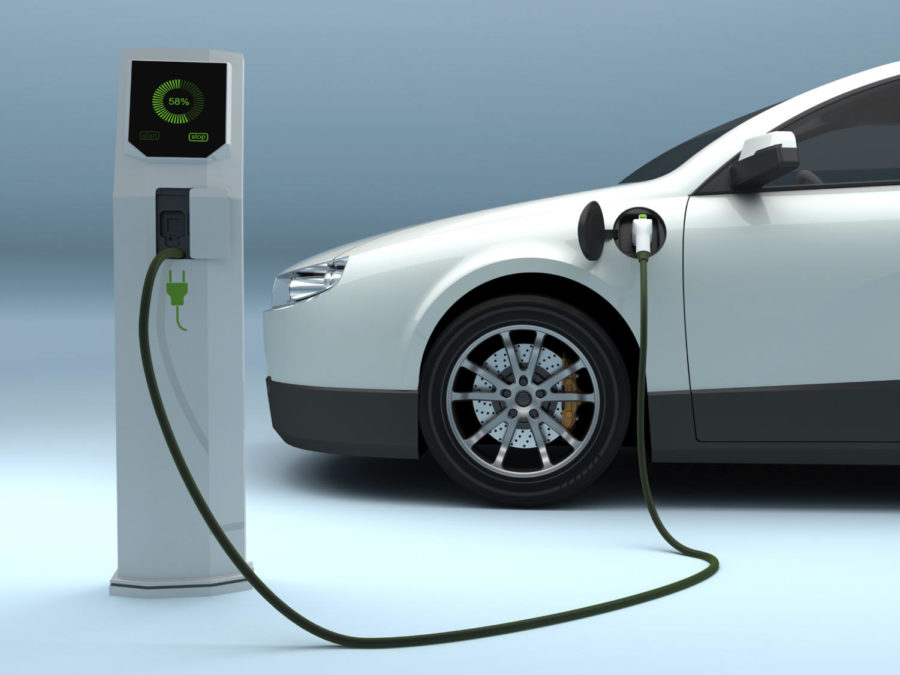Moran: Electric cars are the future
Columnist Moran believes that the future needs to consist of a shift toward electric cars.
October 11, 2015
The U.S. Energy Information Administration reported that about 136.78 billion gallons of gas were consumed in 2014 in the United States. That’s 374.74 million gallons of gas per day, and every gallon of gas we use adds about 19 pounds of carbon dioxide to the air.
We have had access to gasoline for decades, but what happens when we begin to run low on fossil fuels? What happens when we emit too much air pollution into the atmosphere? Gas prices may be declining for the moment, but the effects of greenhouse emission are not reducing in the slightest. So how can we begin to reduce greenhouse effects?
In my opinion, the best solution is an electric vehicle. With this technology, we can begin to wean ourselves off of fossil fuels, which will create a domino effect of change.
A study from the Energy Institute at Haas shows it was able to put a dollar amount on the benefits of having a mid-sized electric vehicle. In the study, electricity was generated from a clean mix of fuels, and it was found that one of these cars would prevent $425 worth of environmental damage in 2015. It was also estimated that one electric vehicle would save $2400 worth of pollution damages by 2040.
Let’s be honest, an electric car isn’t a new idea. In 1996, electric cars were all over the roads in California, but now they seem like a thing of the past.
During my freshmen year in high school, I saw the documentary “Who Killed the Electric Car,” which detailed the life of the General Motors EV1.
Seeing this as a freshmen got me thinking about electric cars. About 100 years ago, they were the car of choice for logical reasons. They were fast, smooth and had no emissions.
The EV1 was a car that was practical, good looking and ran well. Once the car was announced, sales skyrocketed. Waiting lists were created, and other car companies began to adapt and create their own electric vehicles.
Mel Gibson and Tom Hanks were just a few celebrities who piloted an EV1. The odd thing about all of these electric cars is that manufacturers would only lease them, which ultimately helped kill the electric car mandate.
In 2003, California abolished the electric car mandate and recalled all electric cars off of the roads. Many EV1s were destroyed in a desert in Mesa, Ariz., and other electric vehicles followed suit after being destroyed by their manufacturers
So why have we not adapted to an electric vehicle format for cars, let alone a Hybrid Electric Vehicle? It won’t happen right away, but we’ve seen the usefulness of an electric vehicle.
Forbes has even reviewed electric cars and their future. As of now, electric vehicles have not gained a substantial, let alone meaningful, share in any of the three major automotive markets — North America, Western Europe and China.
So why haven’t electric vehicles gained favor in any major auto market? Electric cars have plenty of downfalls.
Short driving ranges and lack of facilities make it difficult for owners to take long trips or move long distances away from home.
Costs are high to produce electric vehicles, and maintaining them can become a hassle. Charging batteries can take a substantial amount of time, and if the car has a problem, it can’t be fixed in any older repair garage.
But electric vehicles help protect the environment and have almost all the benefits of regular cars, which are slowly dismembering our environment. They are fast and efficient. They can get you from point A to point B and work as an everyday car.
Most importantly though, they are clean. We can’t transition to electric vehicles right away, but over time, we can start reducing our dependence on fossil fuels by integrating the necessary amenities that are needed for electric vehicle owners, such as more charging stations. Cleaner energy sources like solar power and wind turbines can help power electric vehicles. These societal adjustments will take time, but will all be worth it in the end.
This is our generation’s — a generation highly in favor of cleaner air — decision, and the consequences will affect us. So what’s more important — taking the easy road that doesn’t require any effort but puts the only planet we have in jeopardy or beginning the necessary transition to electric vehicles?
Our planet can’t speak for itself and the harm we’ve caused it through fuel-powered cars, so it’s our job to take responsibility for the damage and turn our attention to the future — electric cars.







